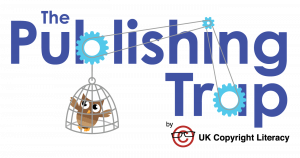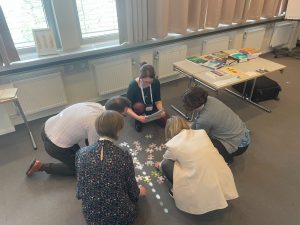How does Citizen Science Change us? Write up from the UCL Open Science Conference 2022
By Kirsty, on 26 May 2022
 Guest post by Israel Amoah-Norman (IGP Research Intern)
Guest post by Israel Amoah-Norman (IGP Research Intern)
The UCL Open Science Conference took place last month. Thanks to Covid, most of the sessions were online. However, on 6th April, the UCL Office for Open Science and Scholarship invited the Institute for Global Prosperity (IGP) to host a hybrid discussion themed ‘How Does Citizen Science Change Us?’. The IGP bases its activities around citizen-led research. For example, it launched its first study in September 2021: where citizen scientists trained by the IGP in qualitative data collection explored the effects of regeneration on household prosperity. The session on 6th April invited members of the research team to discuss how the experience had impacted them. It also invited academic researchers outside of the IGP to present their research and discuss how citizen science (CS) had impacted them and the local communities where their studies had taken place.
A quick side note: open science is focused on inclusive approaches to producing and evaluating research i.e., it opens research beyond the realms of academia to the wider community.
Now, back to the event. The conference was split into three parts:
Dr Rita Campos began proceedings with a thought-provoking opening statement about the benefits of CS. She stated that CS provides an innovative and methodological framework for projects – a move from a top-down approach to a bottom-up approach, and helps to create opportunities for scientists and researchers to learn together.
Following her opening remarks, citizen scientists and academic researchers discussed their research projects. In total, we had the pleasure of listening to 7 presentations. It was clear that from a societal angle, CS allows the examination of issues that really matter in local communities. It also builds stronger connections between members of communities who might not have otherwise spoken to each other. In terms of the individual impacts of CS, one of the presenters who was researching air quality in a community in Liverpool realised that a data-only approach would not help mobilise communities to make a difference. A former citizen scientist trained by the IGP who is now a local council candidate expressed how CS had built her confidence in public speaking. The final part of the conference invited Pye Nyunt (left) (Former Head of Insight & Innovation at the London Borough of Barking & Dagenham) and Dominic Murphy (right) (Principal Participation Officer from the London Borough of Camden) to discuss how CS work had impacted them and policy processes in their boroughs.
The final part of the conference invited Pye Nyunt (left) (Former Head of Insight & Innovation at the London Borough of Barking & Dagenham) and Dominic Murphy (right) (Principal Participation Officer from the London Borough of Camden) to discuss how CS work had impacted them and policy processes in their boroughs.
Dominic discussed his involvement in the Good Life Euston program and explained how the initiative made him realise that there is a route in understanding the issues of planning and regeneration based upon the experiences of Camden citizens. He also made a comedic analogy to citizens being like the councils’ nervous system (I enjoyed that). CS work also gave him the desire to replace public consultants with citizen scientists to survey local people about their experiences in Camden.
Pye explained that CS had taught him the importance of qualitative research. Realising that in his council, a qualitative data team was non-existent, he hired service designers to fix this. He also noted that CS initiatives such as the Community Food Club created in his borough not only help local people but indirectly relieves the financial burden on the council.
The final segment opened the floor to members of the audience – other citizen scientists and researchers asked important questions about CS. Methods for assuring that CS is inclusive, whether CS training should be standardised, and the benefits and potential drawbacks of CS were topics of discussion.
Apart from the technical difficulties of the hybrid event, it went incredibly well. I had never heard of citizen science until January of this year. I always thought of scientific research as an area which could not be accessed by local people. This event made me realise how important it is for citizens to be included in research.
Catch up on the session in full below, or on UCL MediaCentral.
 Close
Close






